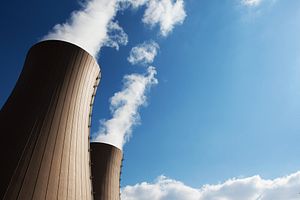Since the shutdown of Kazakhstan’s only nuclear power plant near Aktau, in the west of the country, there has been talk of building a replacement. After more than a decade, it is becoming increasingly difficult to believe that the talk would be translated into action.
A report published in Japan by the Asahi Shimbun at the start of this month revealed that Toshiba, the Tokyo-based multinational, is in negotiations to export a nuclear reactor to Kazakhstan for the construction of a new plant. Together with other Japanese companies, Toshiba has been leading a feasibility study since 2010. The news was not carried in Kazakhstan until last week – through the Russian press – showing, yet again, an incomplete deal.
According to the press, Kazakhstan is buying a one-gigawatt AP1000 nuclear reactor, and aims to complete the construction of a power plant in Kurchatov, in the eastern part of the country, by 2030. The company in charge of the design will be Westinghouse, since 2013 a Toshiba subsidiary. The cost of the reactor should be around $3.7 billion. The parties have until the end of the Japanese fiscal year to seal an agreement, before the negotiations will be adjourned again. The new reactor would represent a major technological leap forward for Kazakhstan. In comparison, before concluding its operations in the 1990s, the reactor in Aktau had a capacity of only 135 megawatts.
Kazakhstan is the world’s largest producer of uranium, the key element for nuclear combustion. In 2013, according to data from KazAtomProm, the state nuclear agency, Kazakhstan produced 22,500 tons of uranium. For 2014, the figure should settle at 22,800 tons, up 1 percent, compared to a 6 percent increase the previous year. Kazakhstan’s leadership in the sector remains intact, as the country provides around 40 percent of the uranium sold in global markets.
President Nursultan Nazarbayev, in his annual address in January 2014, ordered the government to find the optimal location, identify investment sources, and set a schedule for the construction of a new nuclear power plant by the end of March. “We have to develop our own fuel industry and build nuclear power stations,” he told his fellow citizens. The following weeks were to be particularly turbulent, with a sharp devaluation of the national currency against the dollar and the re-shuffling of the government. Not unexpectedly, the final word on the location of the prospective nuclear power plant has yet to be given. In his address this year, Nazarbayev even avoided the word “nuclear.” At least once every year, the president asks the government to reach a decision.
This latest news of the negotiations with the Japanese company is somewhat surprising: After a Memorandum of Understanding was signed with Russia in May 2014, the Russian option seemed to be the most viable one. But since the bilateral meeting in Astana, the parties have neither defined the location or the size (0.3-1.2 gigawatt) of the plant, nor a timeframe for its construction. In 2009, media reports carried KazAtomProm’s optimistic announcement that the country would see a nuclear power plant in Aktau operational by 2016. A typical pressurized water reactor manufactured in Russia would have been the first choice, while Aktau and Lake Balkash were the contenders for the final location.
Through the years, the recurring caveat from public officials speaking about a new nuclear plant in Kazakhstan has been: “The decision has not been given final approval yet, but…” History has shown that these hesitant statements produce inconclusive results. The more the government urges the decision on the definition of the location, or insists that Kazakhstan will have not one, but two nuclear power plants by 2025, the hazier the prospects look. The adoption of the new law on atomic energy might be a sign of progress. In the meantime uncertainty reigns.































